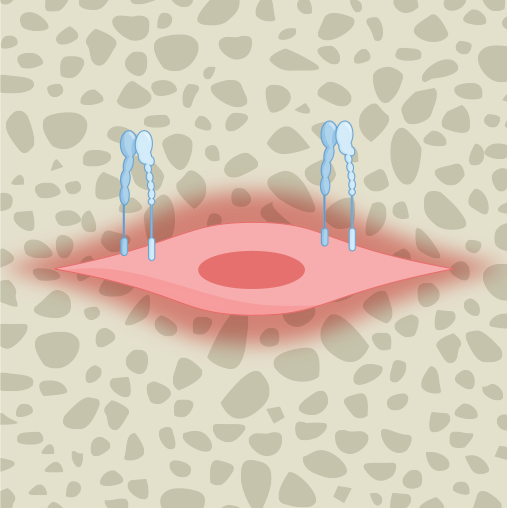Integrin expression on fibroblast-like synoviocytes (FLS) has been implicated in the pathogenesis of rheumatoid arthritis (RA). In cancer, the role of the collagen-binding integrin α11β1 on cancer-associated fibroblasts is well established, but the role of integrin α11 (the alpha subunit of integrin α11β1) in arthritis is unclear. Findings now indicate that integrin α11 might be a therapeutic target for RA. When discussing what prompted this research, corresponding author Adelheid Korb-Pap remarks “we hypothesized that similar mechanisms to those described in cancer could operate in inflammatory joint diseases, such as RA, which are characterized by extensive phenotypic transformation and activation of FLS that drive joint damage”.
The Itga11 gene encodes integrin α11. The authors crossed Itga11−/− and hTNFtg mice, creating a model of RA in which integrin α11 is absent. Using this model, the researchers assessed the role of integrin α11 in disease progression; integrin α11 mice on the hTNFtg background exhibited reduced histological scores for joint destruction, FLS attachment and bone loss compared with wild-type mice. In addition, in vitro analysis revealed that FLS from mice that lack integrin α11 have altered morphology and function. Korb-Pap comments that “our findings demonstrate a previously unrecognized and disease-relevant role for integrin α11 in cartilage degradation and joint pathology”.

